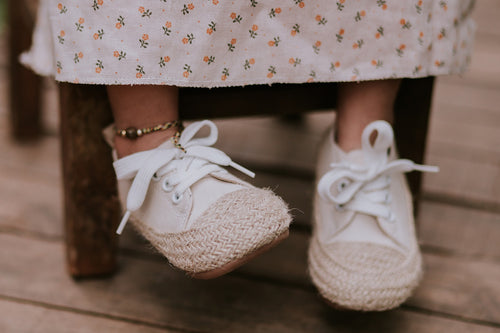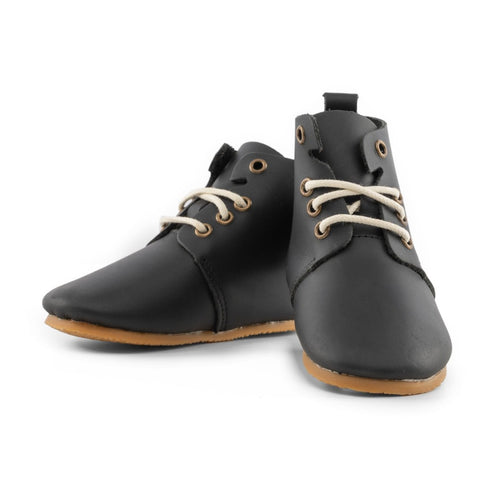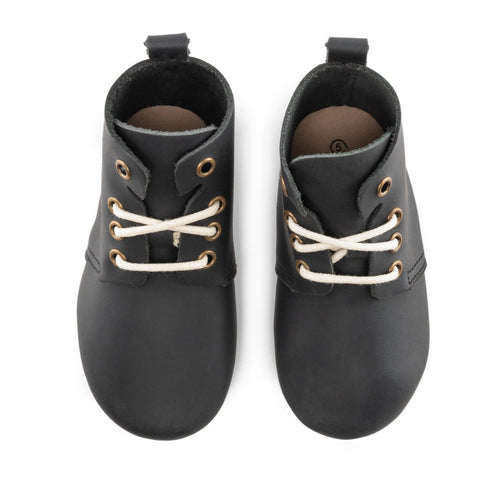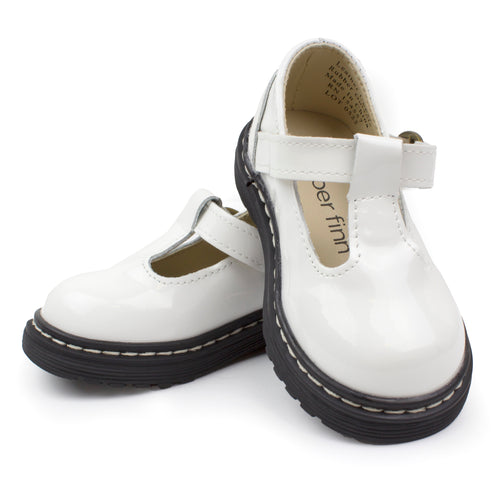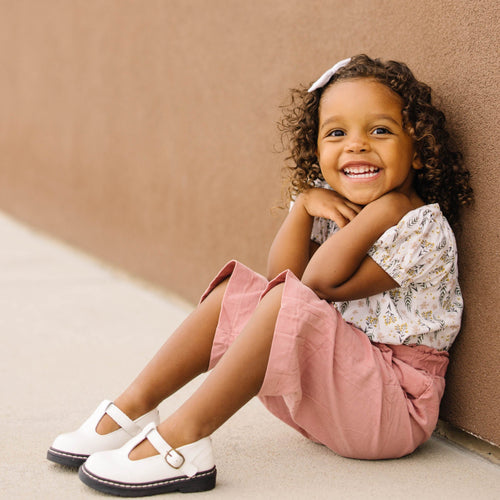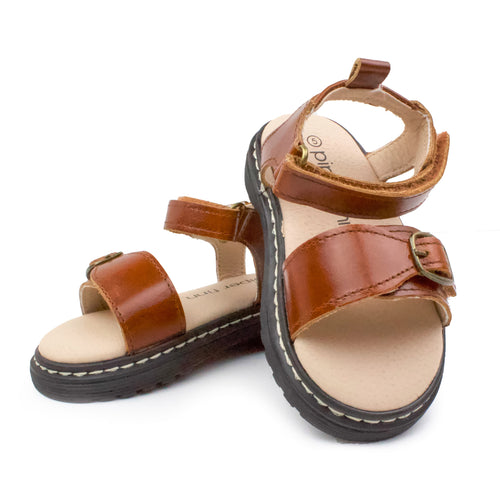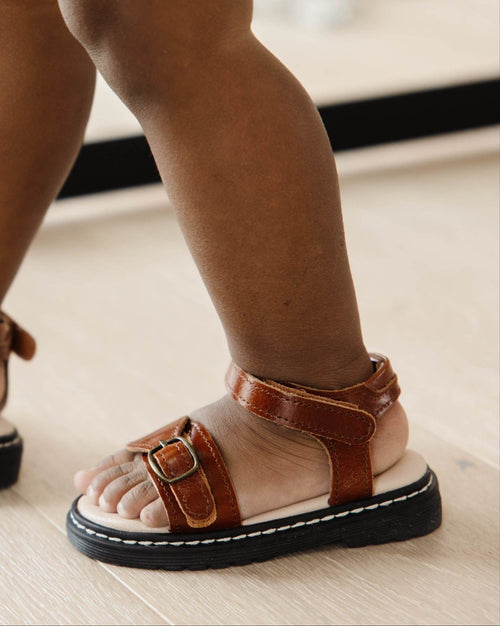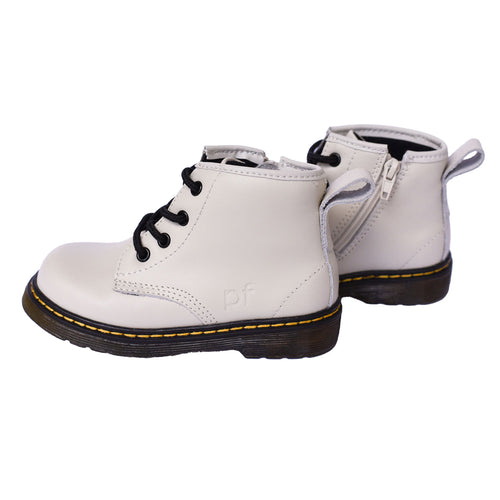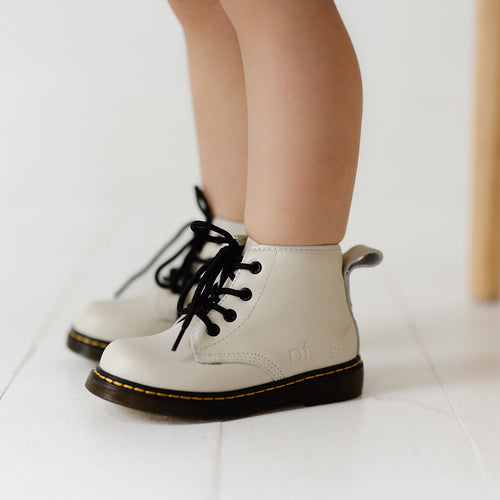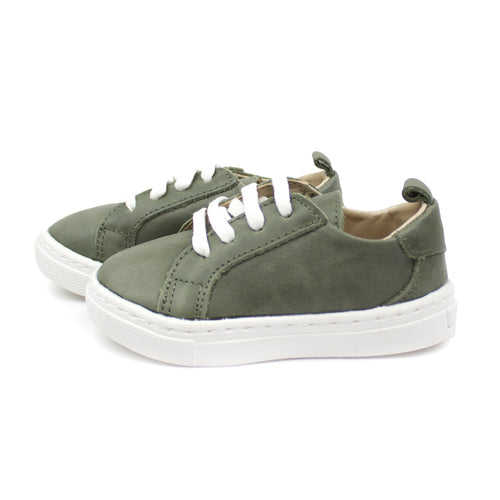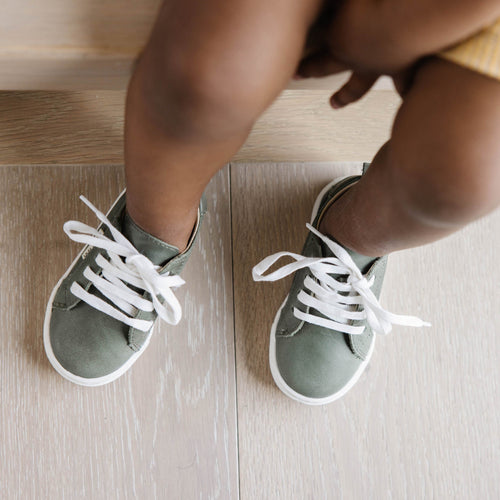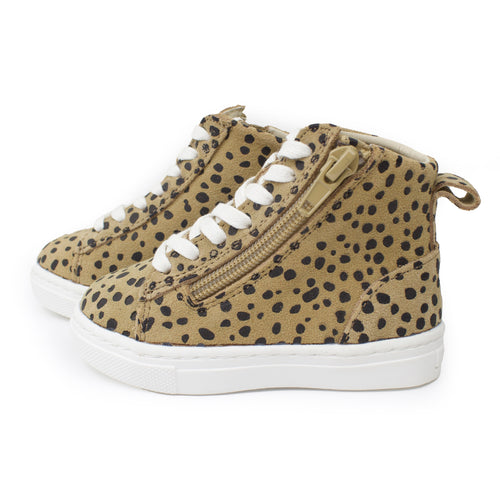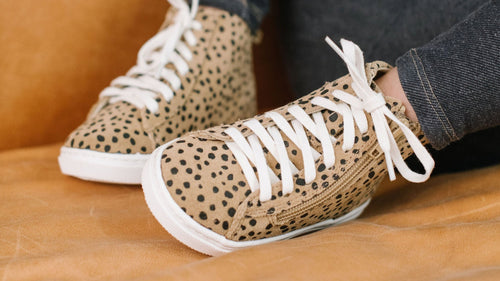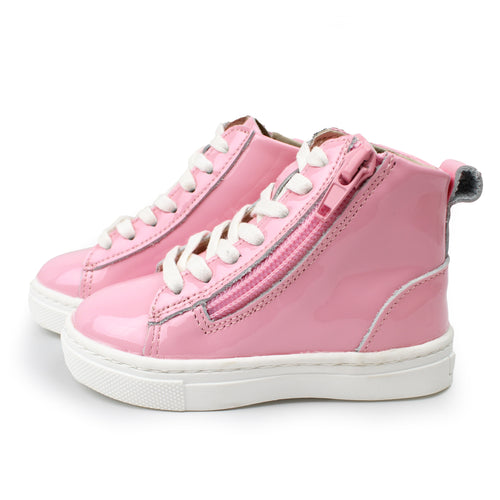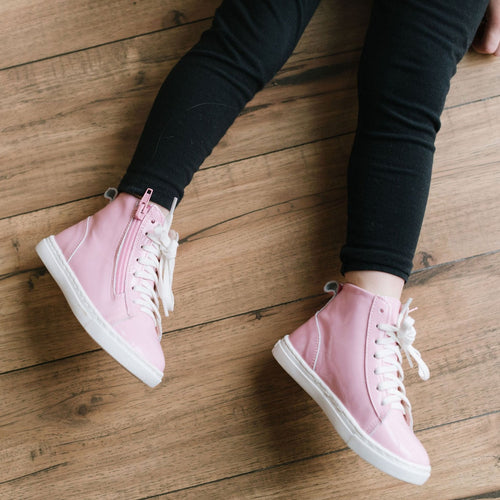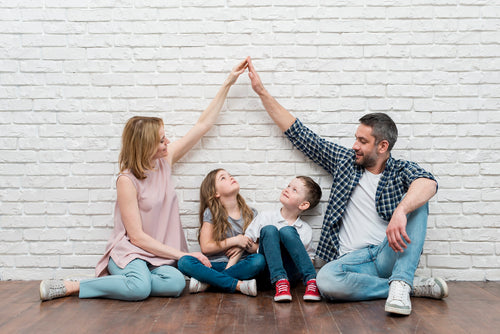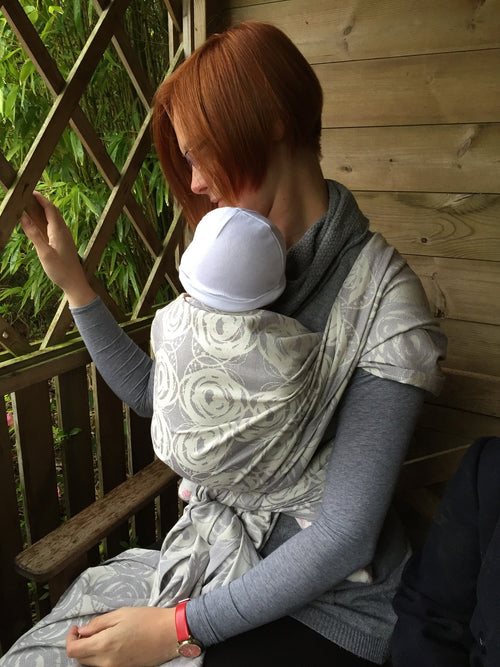From tiny brand sneakers to sparkly flats and jelly sandals, baby shoes are usually very cute, and you may be tempted to buy them all up for your bundle of joy. Welcoming a new baby into the family is an exciting journey filled with firsts, from their first smile to their first step. As a parent, you may be wondering when your little one should take that big step of wearing shoes.
Just because baby shoes are super-adorable doesn’t mean your baby needs them, and they may even hinder their progress if they’ve not reached the appropriate baby shoe-wearing age or walking stage.
In today’s Piper Finn blog post, we’ll explore the baby shoe-wearing age, when to buy your baby’s first shoes, and what you should look for in baby shoes.
When Should You Get Baby Shoes?
You should only get baby shoes when your toddler reaches the proper walking stage or starts walking. The American Academy of Pediatrics notes that your baby will not need shoes until they start walking, as babies’ feet develop best when not confined in shoes.
Shoes are necessary for foot protection, so if your baby is relaxing in a stroller, dangling in a carrier, or scooting on their knees and hands, there’s no need to protect their feet with shoes. All that’s needed for younger babies is to keep their feet warm, and you can achieve this with cozy socks, stroller sacks, or footed snowsuits.
Can Baby Shoes Cause Harm?
Baby shoes can be a hindrance if you put them on babies just learning to balance on growing feet. Shoes can restrict the natural movement of a baby’s feet when they’re still developing and need to flex and move freely to build strength and coordination. Before the proper baby shoe-wearing age, pediatricians recommend helping your baby learn to walk barefoot in a safe space so they can strengthen the muscles and tendons on their feet.
Which is the Right Baby Shoe-Wearing Age?
- Pre-Walking stage (0-9 Months): Before your baby starts walking, there’s no need for shoes. Babies’ feet are still developing, and being barefoot helps them build strength and coordination. During this stage, opt for soft, flexible booties or socks with non-slip soles for warmth and protection.
- Cruising Stage (9-12 Months): As your baby starts pulling themselves up, cruising along furniture, or taking their first steps while holding onto your hand, it’s a good time to consider baby shoes. Look for lightweight, flexible shoes with non-slip soles. Measure your baby’s feet regularly, as their growth can be rapid.
- Walking stage (12+ Months): Once your baby is confidently walking independently, it’s time to invest in your baby’s first shoes. Visit a reputable shoe store where a professional can measure your child’s feet and recommend suitable options. Select baby shoes with good arch support and breathable materials.
The Importance of Your Baby’s First Shoes
Baby shoes serve more than just a fashion statement and play a crucial role in your child’s development:
- Protection: Baby shoes shield tiny feet from hazards such as sharp objects or uneven surfaces.
- Support: Properly fitted shoes provide support as your baby learns to walk, aiding in balance and stability.
- Warmth: In cooler weather or on chilly floors, shoes can keep your baby’s feet comfortably warm.
- Hygiene: Shoes keep your baby’s feet clean, especially when outdoors.
Factors to Consider When Buying Baby Shoes
If your baby has reached the walking stage, keep these factors in mind when shopping for their first baby shoes:
- Accurate Measurement: Get your baby’s feet measured by a professional. Remember that sizing can vary between brands.
- Comfort: Go for shoes that are lightweight, flexible, and have cushioning insoles for convenience. Pay attention to any discomfort or irritation while your child wears the shoes. If you notice any issues, consult with a pediatrician or shoe specialist.
- Fit: Ensure the shoes fit snugly but have enough room for wiggling toes, and avoid shoes that are too close or tight.
- Quality: Invest in high-quality shoes from reputable brands, as they’ll likely be more durable and supportive.
Final Thoughts
Knowing when your baby should start wearing shoes is essential to their early development. While barefoot is best in pre-walking, introducing the right shoes at the cruising and walking stages can support your baby’s growth and protect their delicate feet. Remember, every child is unique, so monitor their progress and consult with professionals when needed to ensure your little one steps into the world with comfort and confidence.

